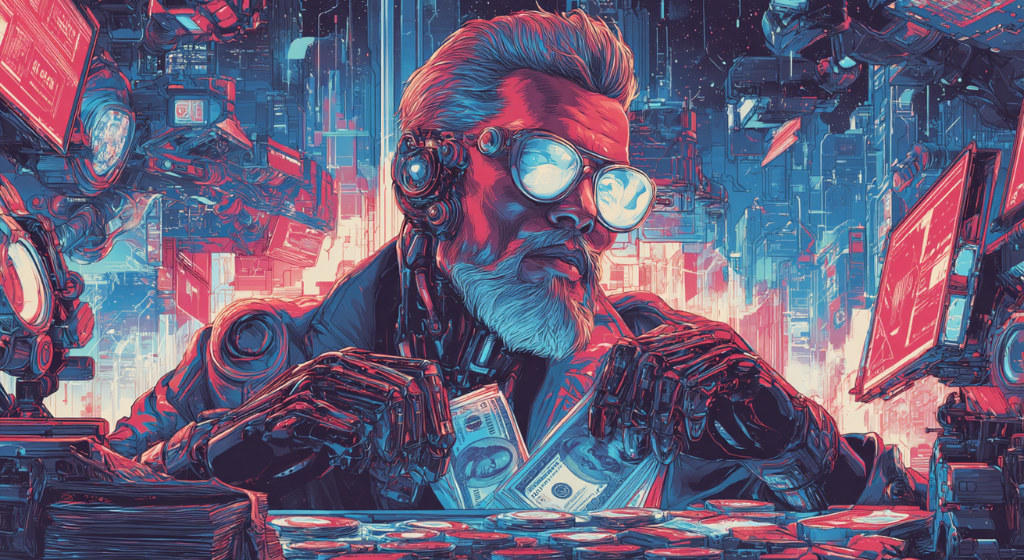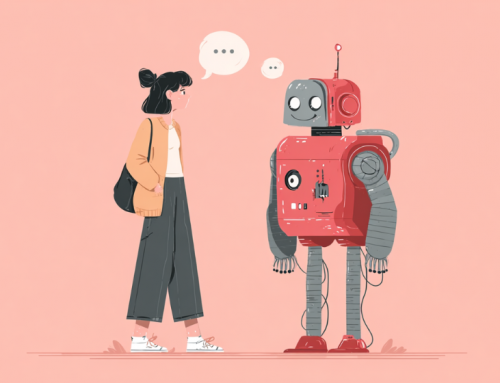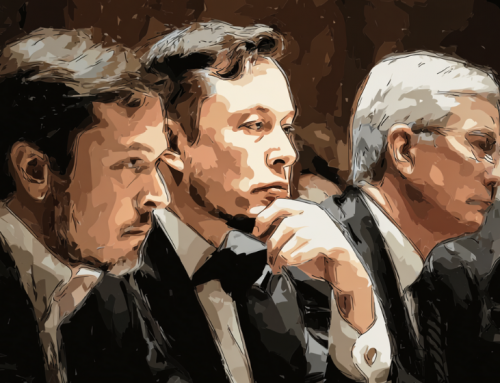
As Big Tech giants like Amazon and Nvidia double down on AI and automation, small businesses face a rising tide of job cuts, bankruptcies and economic displacement — signaling a new phase in capitalism shaped by algorithmic dominance. (Source: Image by RR)
Small Businesses Struggle to Compete in AI-Dominated Markets
Big Tech companies like Amazon are increasingly shifting toward automation while simultaneously reducing their workforces, signaling a larger economic transformation fueled by AI. As companies like Amazon scale their automation capabilities, they reduce the need for human labor while dominating supply chains, making it difficult for both traditional retail and small online businesses to compete. The proliferation of AI is not just impacting consumer sectors — it’s becoming a threat to small businesses across industries, with the majority of new startups and tech giants investing heavily in AI while cutting back on hiring, especially for engineering roles.
A stark contrast has emerged between the growth trajectories of AI-focused companies and the broader economy. Companies that heavily leverage AI — like Google, which now sees over a quarter of its code written by AI — are moving toward full automation, while small and medium-sized businesses face increasing difficulty attracting capital. Data shows that large, profitable companies are now growing at rates traditionally reserved for small caps, a shift previously seen only during major industrial revolutions. This trend, as noted in fastcompany.com, is exemplified by Nvidia, which not only boasts staggering profit margins but also massive growth, highlighting the way AI is helping already-dominant firms entrench their positions.
Financial analysis further underscores this growing divide. Historically, small companies grew faster due to their lower starting points, but now even the tiniest firms are being outpaced by megacaps. The implication is that profitability is fueling growth in a self-reinforcing loop: giants like Nvidia and Amazon continue to scale, develop advanced AI, and reap outsize financial returns. This allows them to attract talent, consolidate market share, and widen the gap between themselves and less-resourced players, locking out smaller competitors.
Ultimately, the growing wave of automation and AI-powered efficiency represents more than a business evolution — it’s a seismic shift in capitalism itself. We are witnessing a new kind of economic monopolization where capital accumulates and scales at unprecedented speed. The AI era is not just driving higher productivity; it’s also amplifying structural inequalities, reshaping labor markets, and rewriting the rules for competition and survival in the global economy.
read more at fastcompany.com







Leave A Comment